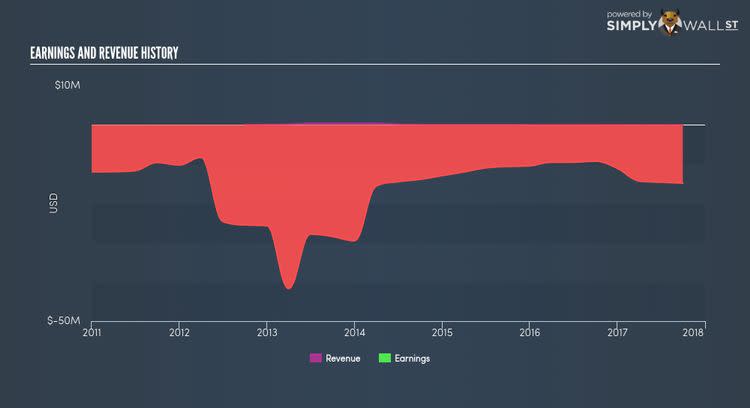What Are The Drivers Of RXi Pharmaceuticals Corporation’s (RXII) Risks?

If you are a shareholder in RXi Pharmaceuticals Corporation’s (NASDAQ:RXII), or are thinking about investing in the company, knowing how it contributes to the risk and reward profile of your portfolio is important. RXII is exposed to market-wide risk, which arises from investing in the stock market. This risk reflects changes in economic and political factors that affects all stocks, and is measured by its beta. Not every stock is exposed to the same level of market risk, and the market as a whole represents a beta of one. A stock with a beta greater than one is expected to exhibit higher volatility resulting from market-wide shocks compared to one with a beta below one.
View our latest analysis for RXi Pharmaceuticals
What does RXII’s beta value mean?
RXi Pharmaceuticals has a beta of 1.79, which means that the percentage change in its stock value will be higher than the entire market in times of booms and busts. A high level of beta means investors face higher risk associated with potential gains and losses driven by market movements. Based on this beta value, RXII can help magnify your portfolio return, especially if it is predominantly made up of low-beta stocks. If the market is going up, a higher exposure to the upside from a high-beta stock can push up your portfolio return.
How does RXII’s size and industry impact its risk?
A market capitalisation of USD $13.98M puts RXII in the category of small-cap stocks, which tends to possess higher beta than larger companies. Conversely, the company operates in the biotechnology industry, which has been found to have low sensitivity to market-wide shocks. Therefore, investors can expect a high beta associated with the size of RXII, but a lower beta given the nature of the industry it operates in. This is an interesting conclusion, since its industry suggests RXII should be less volatile than it actually is. A potential driver of this variance can be a fundamental factor, which we will take a look at next.
Can RXII’s asset-composition point to a higher beta?
During times of economic downturn, low demand may cause companies to readjust production of their goods and services. It is more difficult for companies to lower their cost, if the majority of these costs are generated by fixed assets. Therefore, this is a type of risk which is associated with higher beta. I test RXII’s ratio of fixed assets to total assets in order to determine how high the risk is associated with this type of constraint. Considering fixed assets account for less than a third of the company’s overall assets, RXII seems to have a smaller dependency on fixed costs to generate revenue. Thus, we can expect RXII to be more stable in the face of market movements, relative to its peers of similar size but with a higher portion of fixed assets on their books. This outcome contradicts RXII’s current beta value which indicates an above-average volatility.
What this means for you:
Are you a shareholder? You may reap the gains of RXII’s returns during times of economic growth by holding the stock. Its low fixed cost also implies that it has the flexibility to adjust its cost to preserve margins during times of a downturn. I recommend analysing the stock in terms of your current portfolio composition before deciding to invest more into RXII. For next steps, take a look at RXII’s outlook to see what analysts are expecting for the stock on our free analysis plaform here.
Are you a potential investor? Before you buy RXII, you should take into account how their portfolio currently moves with the market, in addition to the current economic environment. RXII may be a valuable addition to portfolios during times of economic growth, and it may be work looking further into fundamental factors such as current valuation and financial health. You can examine these factors in our free fundamental research report for RXII here.
To help readers see pass the short term volatility of the financial market, we aim to bring you a long-term focused research analysis purely driven by fundamental data. Note that our analysis does not factor in the latest price sensitive company announcements.
The author is an independent contributor and at the time of publication had no position in the stocks mentioned.

